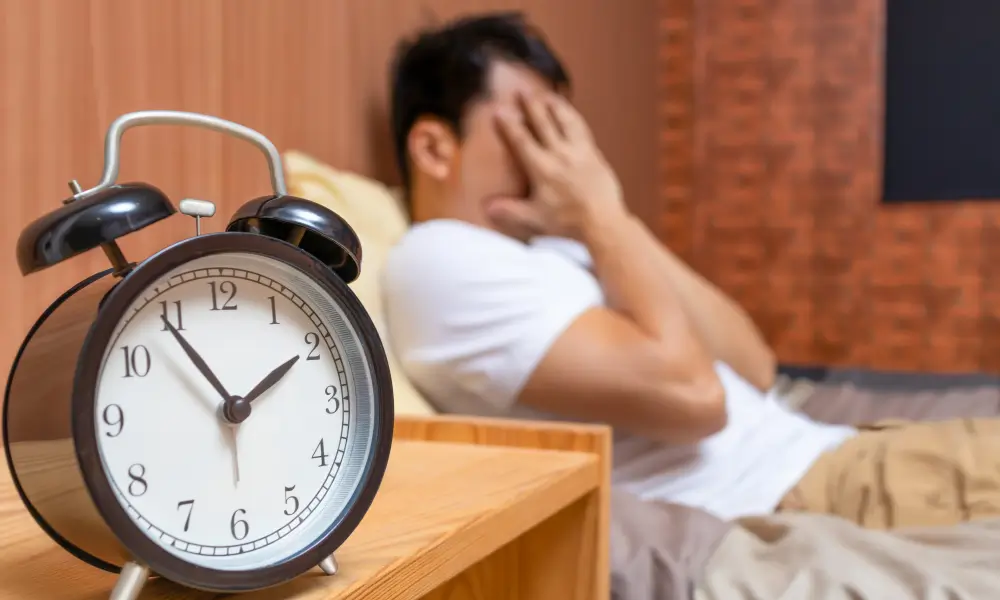Home Remedies for Insomnia

TABLE OF CONTENTS
Sleep quality issues affect millions of people, making natural sleep remedies a vital part of health management. Research shows that one-third of adults worldwide don't sleep well, and about 10% face severe insomnia that needs medical attention.
Bad sleep does more than just make you tired. Your memory gets fuzzy, you can't focus, and your mood takes a hit. The risks of depression, obesity, type 2 diabetes, heart disease and high blood pressure also go up. Older people often find it harder to fall asleep and stay asleep, and their sleep quality tends to get worse with age.
Adults need 7-9 hours of sleep each night. Many things can mess with this pattern - stress, anxiety, an uncomfortable bed, noise, or even alcohol, caffeine, and nicotine. Insomnia doesn't just leave you exhausted - it throws both your body and emotions out of balance.
The good news? You don't always need prescription drugs to sleep better. Simple solutions like mindfulness, changing what you eat, trying herbal supplements, or tweaking your daily habits can help. This article explains budget-friendly home remedies that could help you get back to sleeping soundly and living better.
7 Home Remedies for Insomnia
You don't always need prescription medications to get better sleep. Natural approaches work really well and don't have nasty side effects. Here are eight ways that can help you rest better:
Mindfulness Meditation and Relaxation Techniques: Your racing thoughts calm down when you focus on your breathing patterns and body sensations through mindfulness meditation. Your body gets the signal to unwind when you tense and release different muscle groups through progressive muscle relaxation.
Yoga and Gentle Exercise: Specific yoga poses like Child's Pose or Legs-Up-The-Wall target sleep problems directly. Doing a 20-minute moderate-intensity yoga every day helps keep your sleep cycles steady. Just remember not to do heavy exercises right before you go to bed.
Mantra Repetition and Positive Affirmations: Your mind learns to connect bedtime with peace instead of worry when you silently repeat calming phrases like "I am relaxed" or "My body is ready for sleep". This simple practice takes your attention away from thoughts that keep you awake.
Massage Therapy and Self-massage: Sleep comes easier when you release physical tension. Gently massage your temples, neck and shoulders before going to bed. Getting a professional massage can help even more because it reduces cortisol and increases serotonin levels.
Sleep Hygiene and Lifestyle Changes: Natural sleep comes easier when you stick to regular sleep times. Cut down on screen time before bed, keep your bedroom cool and dark, and skipping caffeine after lunch also helps.
Cognitive Behavioural Therapy for Insomnia (CBT-I)
This well-laid-out programme addresses sleep problems head-on. It uses sleep restriction, stimulus control and techniques that reshape how you think about sleep. Unlike pills for sleep, which give short-term help, CBT-I focuses on the main causes of insomnia and brings lasting improvements. Sleep experts often recommend it as the safest and best option to treat long-term insomnia.

Conclusion
Sleep problems affect millions of people worldwide. Nature offers many solutions, and it is possible to regain peaceful sleep without relying on prescription drugs.
Mindfulness techniques help calm racing thoughts and make your mind more settled. Stretching your body with yoga or slow movements helps it relax and get ready for deep sleep. Sticking to a regular bedtime and creating a quiet space to sleep can address many common sleep problems.
Better sleep takes time to develop. You might need to mix and match these remedies to find what suits you best. Most people find that these gentle approaches not only help them sleep but also make them feel better during the day.
Don't suffer through another sleepless night. Try these natural methods instead. Your body knows how to sleep—it just needs the right conditions to remember. Peaceful nights and energised days can become your reality again with some patience and consistency.
FAQs
Can meditation and yoga really help with sleep problems?
Yes! Studies show mindfulness meditation substantially improves insomnia symptoms. More than half of yoga practitioners report better sleep quality. Yoga helps especially when you have menopause symptoms and older adults who struggle with sleep disturbances.






